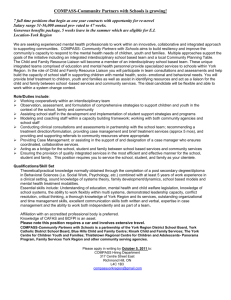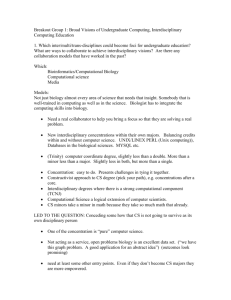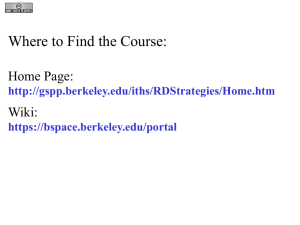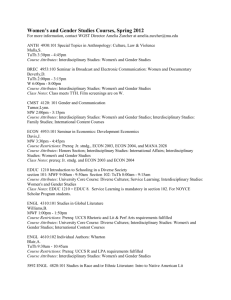Applicant's Name - Interdisciplinary Programs
advertisement
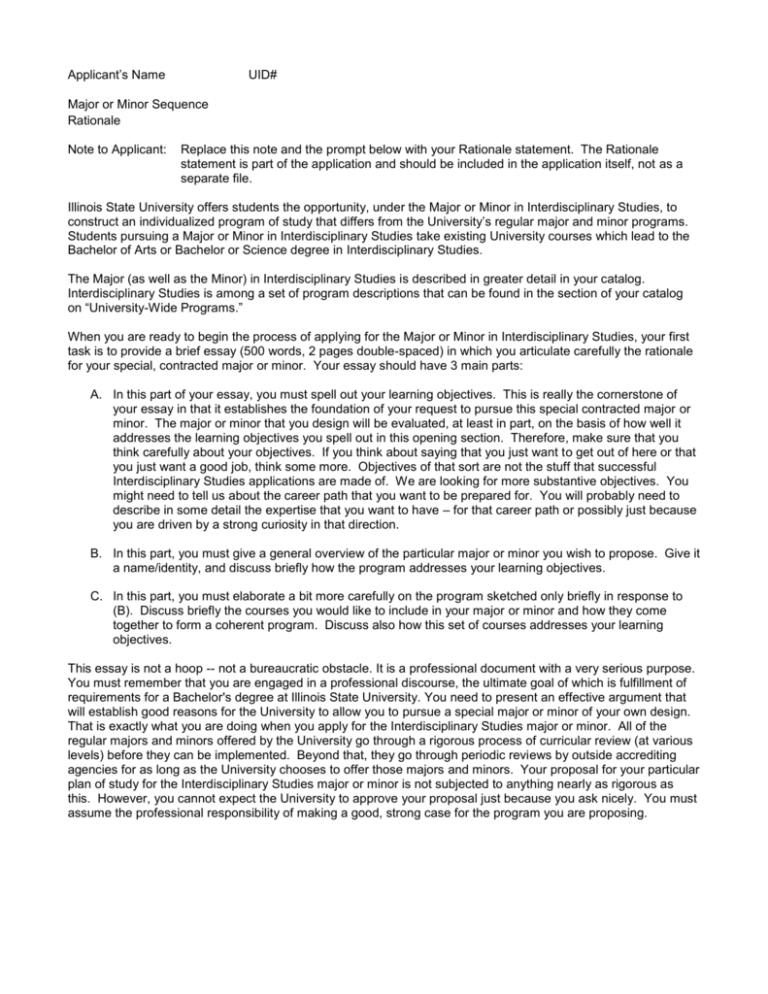
Applicant’s Name UID# Major or Minor Sequence Rationale Note to Applicant: Replace this note and the prompt below with your Rationale statement. The Rationale statement is part of the application and should be included in the application itself, not as a separate file. Illinois State University offers students the opportunity, under the Major or Minor in Interdisciplinary Studies, to construct an individualized program of study that differs from the University’s regular major and minor programs. Students pursuing a Major or Minor in Interdisciplinary Studies take existing University courses which lead to the Bachelor of Arts or Bachelor or Science degree in Interdisciplinary Studies. The Major (as well as the Minor) in Interdisciplinary Studies is described in greater detail in your catalog. Interdisciplinary Studies is among a set of program descriptions that can be found in the section of your catalog on “University-Wide Programs.” When you are ready to begin the process of applying for the Major or Minor in Interdisciplinary Studies, your first task is to provide a brief essay (500 words, 2 pages double-spaced) in which you articulate carefully the rationale for your special, contracted major or minor. Your essay should have 3 main parts: A. In this part of your essay, you must spell out your learning objectives. This is really the cornerstone of your essay in that it establishes the foundation of your request to pursue this special contracted major or minor. The major or minor that you design will be evaluated, at least in part, on the basis of how well it addresses the learning objectives you spell out in this opening section. Therefore, make sure that you think carefully about your objectives. If you think about saying that you just want to get out of here or that you just want a good job, think some more. Objectives of that sort are not the stuff that successful Interdisciplinary Studies applications are made of. We are looking for more substantive objectives. You might need to tell us about the career path that you want to be prepared for. You will probably need to describe in some detail the expertise that you want to have – for that career path or possibly just because you are driven by a strong curiosity in that direction. B. In this part, you must give a general overview of the particular major or minor you wish to propose. Give it a name/identity, and discuss briefly how the program addresses your learning objectives. C. In this part, you must elaborate a bit more carefully on the program sketched only briefly in response to (B). Discuss briefly the courses you would like to include in your major or minor and how they come together to form a coherent program. Discuss also how this set of courses addresses your learning objectives. This essay is not a hoop -- not a bureaucratic obstacle. It is a professional document with a very serious purpose. You must remember that you are engaged in a professional discourse, the ultimate goal of which is fulfillment of requirements for a Bachelor's degree at Illinois State University. You need to present an effective argument that will establish good reasons for the University to allow you to pursue a special major or minor of your own design. That is exactly what you are doing when you apply for the Interdisciplinary Studies major or minor. All of the regular majors and minors offered by the University go through a rigorous process of curricular review (at various levels) before they can be implemented. Beyond that, they go through periodic reviews by outside accrediting agencies for as long as the University chooses to offer those majors and minors. Your proposal for your particular plan of study for the Interdisciplinary Studies major or minor is not subjected to anything nearly as rigorous as this. However, you cannot expect the University to approve your proposal just because you ask nicely. You must assume the professional responsibility of making a good, strong case for the program you are proposing.





